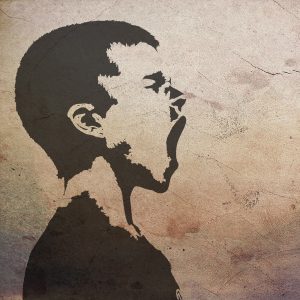10 Jun 2022 | Belarus, Brazil, China, Hong Kong, Opinion, Philippines, Russia, Ruth's blog, Ukraine, United Kingdom, United States

This week has been awful.
The news has been devastating and all consuming. But that feels like it’s becoming the norm.
In Belarus, our friends remain under attack – Andrei and Irina’s trial began on Monday. We have no idea of the outcome.
In Brazil, Dom Phillips and his colleague Bruno Araújo Pereira remain missing – but with reports of fresh blood being found, our hearts break for their loved ones.
In Ukraine, we see daily the death and destruction caused by the Russian invasion, up to 200 Ukrainian soldiers killed a day. And the reports of cholera in Mariupol are beyond my comprehension in the twenty-first century.
In Russia, the crackdown against dissidents continues unabated – with limited coverage. 160 people are currently defending criminal cases for anti-war statements and this week a close associate of Alexei Navalny was tried in absentia and placed on the international wanted list.
In the Philippines, Ferdinand Marcos Jr has been elected as the next President and made his first visit to the US as President-Elect – seemingly the legacy of his parents no longer an electoral or diplomatic issue.
In Hong Kong, six brave democracy protesters were arrested for the temerity of marking the anniversary of Tiananmen Square.
In the US – the inquiry into the Capitol Riot is officially underway – highlighting just how fragile our collective democracy is and how desperately we need to cherish and protect it.
And that’s before I even touch on what is happening in the UK, the ongoing political crises, and the ideologically incoherent approach to freedom of expression protections.
And in too many countries this is now framed through the prism of a cost-of-living crisis as a scale that we haven’t seen for a generation.
My only comfort is that we know what is happening. In a digital age it is very difficult for any leader, however repressive, to completely silence dissent about their domestic actions. The joy of a free press in democratic countries is that it enables us to be informed and to demand more and better – from our own leaders and from those that claim a global role. It enables us to analyse the scale of the threat and to try and prioritise our efforts in assisting those brave enough to stand against tyranny.
Index exists to provide a platform for the persecuted. We work every day with those who refuse to be silenced. The least we can do is listen to them and then join their fight.
6 Jun 2022 | Belarus, News
 “Andrei Aliaksandrau is a merry fellow and a joker, a manager and a poet, an idealist and a pragmatist all rolled into one. He is persistent in defending his point of view, direct in his convictions and sensitive to falsehood. I didn’t like arguing with him because he’s stubborn. I always knew I could count on him because he’s honest.
“Andrei Aliaksandrau is a merry fellow and a joker, a manager and a poet, an idealist and a pragmatist all rolled into one. He is persistent in defending his point of view, direct in his convictions and sensitive to falsehood. I didn’t like arguing with him because he’s stubborn. I always knew I could count on him because he’s honest.
“Aliaksandrau is a knight, a romantic. In company he jokes and chats a lot – but it never tires. It’s fun with him.
“At one time, we gathered for poetry readings at our house. I remember once Andrei brought a jar of pickles made by his mother. They were the most delicious pickles I had ever tasted.
“It is too painful to think that now I can’t call Andrei and our friend Ales Lipai (he died in the summer of 2018) and say, “Guys, let’s get together on Saturday!” and start discussing a topic for the meeting. Aliaksandrau would not like my topic. He would suggest another one. We would have a friendly row for a while and would conclude to sort it out at the meeting place. I would say, ‘OK, Aliaksandrau. We are looking forward to you on Saturday at six!’ And I would know that Andrei would come on time.
6 Jun 2022 | Belarus, News

Andrei Aliaksandrau before his detention
Dear friends
For the four months since the final charge was brought against me, I have hardly received any letters and I don’t know if my letters reach those I continue to write regularly to; more or less stable postal communications remain only with my parents.
But I know and feel your support from rare, undiverted carrier pigeons, regular cute sendings and delicious parcels, for which I am constantly grateful;
I know that many of my friends and colleagues were going to see me at trial in our case that begins on 6 June; but our trial will be closed “for the purpose of not disclosing a secret protected by the law”. What kind of secret this is, I don’t know yet, it is too well protected, and I have stayed in the pre-trial detention centre under investigation for even less than a year and a half; how am I to know?
Perhaps the secret is that the people who will be judged are not guilty of anything; at the very least, I will not plead guilty to what I am accused of.
I am going to the court without unnecessary illusions, but with a clear conscience, and even with excitement.
I will see at last the people dear to me; it is a pity, of course, that I will see them in the dock, but this is now a popular meeting place for good people; and I will be in this place next to good people whose friendship I am proud of.
Irina Levshina is a person with a kind heart and iron principles, a super editor, a pro of the highest level. Dima Novozhilov is exceptionally decent, dutiful, responsive and supportive (another undeniable advantage is that he is a Liverpool fan). And Irina Zlobina is a person with the most unimaginable combination of kindness, intelligence, and beauty in all its forms that I have met in my life.
I’m a happy man. Only a really lucky man could get into such high-class company. Only a really lucky man could get all of you as friends – fellow citizens, colleagues, kind and good people. Thank you for all your warmth, solidarity and support! With them, I feel absolutely calm and steady. It is a pity that I cannot personally congratulate my mother on her birthday, which she will celebrate one of these days. But we will definitely catch up. Life goes on. We go on. History – our history – keeps moving on. Nothing ends.
Let’s write further. Hugs.
Andrei
1 Jun 2022 | Belarus, Opinion, Ruth's blog

On Monday Andrei Aliaksandrau (pictured right) and Irina Zlobina, our friends in Belarus, will finally have their day in court, 511 days after they were detained by Lukashenka’s police.
It may, however, be a little misguided to believe that this will be a free and fair trial. There will be no media present. This will be a closed hearing. Their Belarussian lawyers have had to sign a non-disclosure agreement and are prohibited from speaking publicly about the trial. There will be no genuine trial, evidence taken or appeal process.
Andrei and his girlfriend Irina have been charged with treason. Their ‘crime’ was paying the fines of some of the protesters who were arrested after Lukashenka’s sham election. They weren’t even present at the demonstrations. Their potential sentence will be 15 years in a jail cell.
This travesty of justice isn’t occurring in some dim and distant land, but rather only 1,400 miles from where I currently sit.
Andrei and Irina are our friends. Andrei used to work for Index on Censorship – and if all was well, he would now be guiding our work on Ukraine and Russia, ensuring that we were providing a voice for the persecuted. Instead, he is sitting in a jail cell, with 1,214 other political prisoners waiting to learn of his fate. To learn of his partner’s fate. He may be silenced but we are not. So, we have to be his voice.
Today and every day – we are Andrei. We are Irina.
On Monday we will be dedicating our social media to them and their story. Shining a spotlight on the ongoing repressive of Lukashenka’s regime and the effect it is having on our friends, colleagues and those who bravery inspires our work every day.
All we ask of you is a little time and some help – read Andrei and Irina’s testimony on Monday. Read the words of their friends who are scared and share their stories. Because there but for the grace of god go all of us.


 “Andrei Aliaksandrau is a merry fellow and a joker, a manager and a poet, an idealist and a pragmatist all rolled into one. He is persistent in defending his point of view, direct in his convictions and sensitive to falsehood. I didn’t like arguing with him because he’s stubborn. I always knew I could count on him because he’s honest.
“Andrei Aliaksandrau is a merry fellow and a joker, a manager and a poet, an idealist and a pragmatist all rolled into one. He is persistent in defending his point of view, direct in his convictions and sensitive to falsehood. I didn’t like arguing with him because he’s stubborn. I always knew I could count on him because he’s honest.